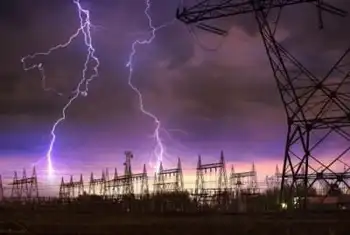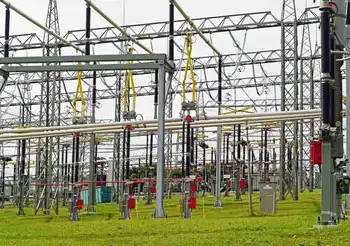Shifting British ColumbiaÂ’s renewable agenda into high gear
Some of B.C.Â’s brightest minds are therefore starting to think big regarding B.C.Â’s energy future. Driving the ambition of one company is the vision of a clean energy corridor extending east to Alberta and Saskatchewan and south to California with B.C. as the hub.
A brilliant idea, the plan will require stakeholder collaboration and the leadership of a government that is not only ready for action but able to balance public interests with the need for private sector innovation.
The time is now. The worldÂ’s top scientists warn of catastrophic consequences including the loss of 85% of the Amazon rainforest, the inundation of cities like New York, London and Tokyo by rising sea levels and a world hardly imaginable by the end of this century if there isnÂ’t responsible climate action.
“We all know that time is running out,” U.S. President Barack Obama told a town hall meeting recently, “we cannot afford politics as usual — not at a moment when the energy challenge we face is so great and the consequences of inaction are so dangerous.”
President Obama empowered a nation and citizens across the globe with his 2008 presidential slogan ‘Yes we can.’ Now Obama is putting money where his mouth is by designating $76 billion of the U.S. economic recovery bill to renewable energy and energy efficiency technology, out of which $7.75 billion has been set aside for ‘smart’ electricity grid infrastructure.
For a country crippled by an economic crisis, the statement is bold and clear: climate change is a top priority.
In Canada, the message is less clear. Canadian Prime Minister Stephen Harper’s economic stimulus package assigns six times less money per capita than the U.S. for clean energy solutions, and the word “renewable” fails to appear in his bill.
Climate change is risky business. It is understandable that governments across the globe are slow to commit to uncertain solutions. Clean energy proposals face an incredibly high rate of attrition; the financial risk in many cases seems way too high for publicly owned utilities. But can we afford to wait for certainty?
The Union of Concerned Scientists declares that “reducing emissions is much less costly than failing to reduce emissions and adapting to resulting climate change.”
Business entrepreneurs understand risk. They also know how to recover when a mistake happens. Climate change mitigation demands the involvement of big thinkers and a business approach that involves unwavering commitment across the board.
One small company thinking big is Mantra Energy Corporation, a B.C. company committed to developing and commercializing green technologies. Mantra sees the potential in the provinceÂ’s abundance of renewable resources. Company CEO Larry Kristof believes B.C. is primed to become the Pacific NorthwestÂ’s hub for renewable energy generation.
A province blessed with miles of mountainous terrain, a wild and windy coastline, and a desert-like interior, which is located on the Pacific Rim’s subterranean ‘ring of fire,’ B.C.’s potential is remarkable.
Various studies propose that B.C. has 17,310 Megawatts (MW) of potential wind power, 37,000 MW of offshore wave power, 4,015 MW of tidal power, 2,454 MW of small hydropower, 3,000 MW of geothermal power, 6,000 MW of long-term solar power, and due to its forestry industry, a variety of biomass energy options. As some of the above numbers may be underestimated, an inter-university review of potential resource hotspots is required.
Not limited by borders, the market for greenhouse gas solutions remains wide open. Both Oregon and California have passed progressive renewable energy bills mandating that 25% and 33%, respectively, of state energy must come from renewable sources by 2025.
Having fewer and fewer resources to pull from in California, the state is looking to its neighbors. Their major electric utilities company PG&E has already shown interest in connecting various renewable energy projects in B.C. to CaliforniaÂ’s electricity grid by way of a $4 billion transmission system upgrade.
Alberta, although wealthy in renewable energy resources, built its economy on the backbone of oil and gas, and now on the oil sands. A recent $2 billion commitment to investment in carbon capture and storage technology shows that they are ready to upgrade their image. In the future, buying renewable energy from B.C. would go a long way toward creating a clean slate for the oil sands.
Steeped in both financial and natural wealth and home to an internationally renowned hotbed of innovative technology, B.C. along with its green conscience, has all the components needed to become a leader in clean and renewable energy technologies.
Still B.C.Â’s potential remains widely unrealized.
ItÂ’s not that there arenÂ’t companies and organizations trying valiantly to make green energy work in B.C. Various companies are working hard at harnessing B.C.Â’s potential. But a lack of large-scale political commitment and the ongoing debate in B.C. over public versus private ownership continues to hinder B.C.Â’s green energy transformation.
The B.C. Energy Plan: A Vision for Clean Energy Leadership states that a ‘combination of renewable alternative energy sources and conservation will allow us to pursue our potential to become a net exporter of clean, renewable energy to our Pacific neighbors.’
Government initiatives like the $25 million Innovative Clean Energy Fund and the Standing Offer Program, which encourages small (under 10MW) clean energy projects, are steps in the right direction but they only take B.C. so far.
BC Hydro, a predominantly hydroelectric company that controls 94% of B.C.Â’s electricity production, has also opened its doors in recent years to alternative energy sources. Run of the river projects have received the majority of support from BC Hydro through the Calls for Power as their transition into the BC Hydro economy is relatively smooth. The uptake of non-hydro energy sources like wind, wave, tidal and geothermal however, continues to occur at a snailÂ’s pace as the projects lack the necessary political and financial commitment.
Adding to B.C.Â’s slow transformation is the concern of B.C. citizens over what privatization will do to both the environment and the price of electricity.
Some environmentalists strictly oppose renewable energy projects due to the unknown ecological consequences and others like David Suzuki, Canada’s award-winning scientist, environmentalist and broadcaster, understand that “global warming will kill birds and bats, as well as other species, in much greater numbers than wind power. We just need good planning to ensure that our energy production is balanced with ecological concerns. And we need to believe in our ability to develop solutions.”
On price escalation, the Suzuki Foundation advocates the installment of Advanced Renewable Tariffs (ARTs), a method successfully adopted in Europe which integrates renewable sources of electricity into the grid at a fixed price specified by the power utility.
So how will B.C. shift its renewable energy potential into high gear?
Mantra believes that the transformation starts with a clear and exciting vision of what we can accomplish together. By stating our ultimate goal, coordination can begin between individual efforts, leading us to a unified approach. As Obama recently stated in regards to clean coal, “If we can put a man on the moon…”.
“The first step is a BIG idea and then we start connecting the dots,” says Mantra CEO Kristof, “by bringing the political leaders together, forging relationships with investors and the international community and by building public-private partnerships that honor public interests we can move forward on green energy.”
Kristof believes that an L-shaped clean energy corridor with B.C. at its hinge is the type of big idea B.C. needs to motivate action. Equipped for the challenge, companies like Mantra are skilled at connecting the technologies to the people and the finances. They bridge the gap between science and investment, match opportunities with needs, and find innovations that address urgent new questions.
Mantra is just one company that has begun to coordinate a planetary system of partners, collaborators, contributors and licensees committed to green technologies. The company recently signed a Korean firm to help commercialization of its revolutionary clean energy technology, the ERC (electro-reduction of carbon dioxide).
With a variety of similarly ambitious companies in B.C. and the myriad of opportunity at its doorstep, it is essential that the B.C. government steps up to the plate and dedicates a provincial strategic governmental agency solely to directing B.C.Â’s renewable energy agenda. The agency would be responsible for setting targets, timelines and standards for renewable energy projects, overseeing a one-stop project approval process and coordinating green energy programs.
Big ideas can be successful if they are backed by a clear mandate and strong political leadership. By working together, the public and private sectors in B.C. can create an L shaped clean energy corridor, open new markets and catapult B.C. onto the world stage as a leader in green energy.
Related News

Working From Home Will Drive Up Electricity Bills for Consumers
TORONTO - Household electricity bills are set to soar, thanks to the millions of people now working at home to avoid catching the coronavirus.
Running laptops and other home appliances will cost consumers an extra 52 million pounds ($60 million) each week in the U.K., according to a study from Uswitch, a website that helps consumers compare the energy prices that utilities charge.
For each home-bound household, the pain to the pocketbook may be about 195 pounds per year extra.
The rise in price for households comes even as overall demand is falling rapidly in Europe, with wide swaths of the economy shut…





